Lobster fishers from Sainte Luce travelled almost 1,000 kilometres across southern Madagascar to learn from Velondriake’s experience of temporary octopus closures
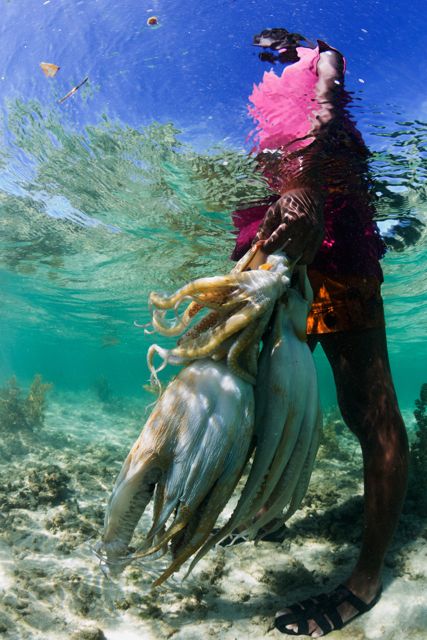
Octopus fisher in Andavadoaka
Blue Ventures is working to support some of Madagascar’s most isolated coastal communities to manage their fisheries and marine resources. Starting with a trial in the village of Andavadoaka in 2004, the temporary octopus fishery closure model has proven to be a highly effective tool for boosting catches and fisher incomes in short timeframes, thereby catalysing community engagement in broader marine management efforts. This approach has since been replicated by more than 50 villages along the southwest coast, with viral uptake facilitated by peer-to-peer learning through fisher exchanges. The same model is being applied to mangrove crabs along the western coast, and earlier this year we were excited to be connected with Azafady through the SmartFish project, which generously funded an exchange visit in order to explore how this approach could be used to support the management of the spiny lobster fishery on Madagascar’s southeast coast.
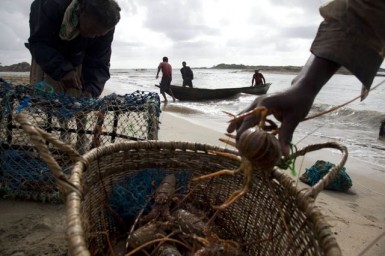
Lobster fishers with their traps and catch in Sainte Luce © Ed Kashi for Azafady
Azafady is a British charity and Malagasy NGO partnership that runs conservation, livelihood, health and education projects in the Anosy region of southeast Madagascar. Much of their conservation work is centred in the coastal village of Sainte Luce, where 80% of people rely on fishing for food and income. Natural resource management efforts have historically focused on the remaining littoral forest fragments in the area, but Azafady recently expanded the scope of its work to encompass marine resources, in recognition of their critical importance to local livelihoods.
Sainte Luce is one of the main contributors to the region’s spiny lobster fishery, which itself accounts for a staggering 70% of the entire nation’s production, yielding up to 300 tonnes every year. Lobster represents a lucrative business for local fishers, and is the economic lifeblood of their community, with seafood buyers flying in from the nearby town of Fort Dauphin to purchase catches for export to Europe and Asia. Worryingly though, recent research suggests that the spiny lobster fishery is likely to collapse within the next decade unless sustainable management principles are urgently applied.
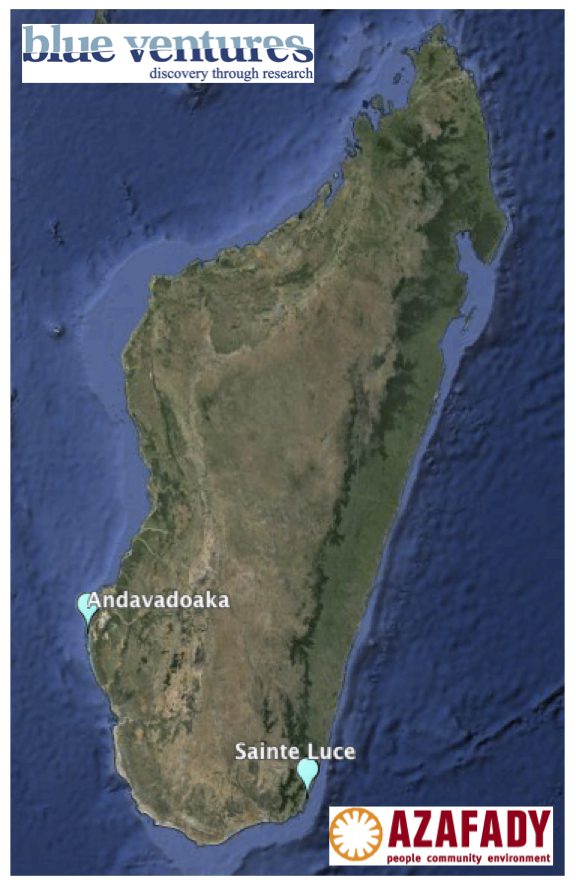
The delegation from Sainte Luce travelled almost 1,000 kilometres across southern Madagascar to reach Andavadoaka
With this in mind, SmartFish kindly supported a community exchange, sending a delegation of lobster fishers from Sainte Luce to visit Andavadoaka where they could learn about implementing temporary fishery closures from the experts themselves. In late July, this intrepid group travelled almost 1,000 kilometres across southern Madagascar to reach Andavadoaka, where they received a very warm welcome from the local community and Blue Ventures team! The next three days were spent exchanging ideas and experiences with the Velondriake Association, going on several field trips and holding animated discussions covering topics including how to build community acceptance of temporary fishery closures, develop and enforce Dina (local management rules), and monitor the impact on catches.
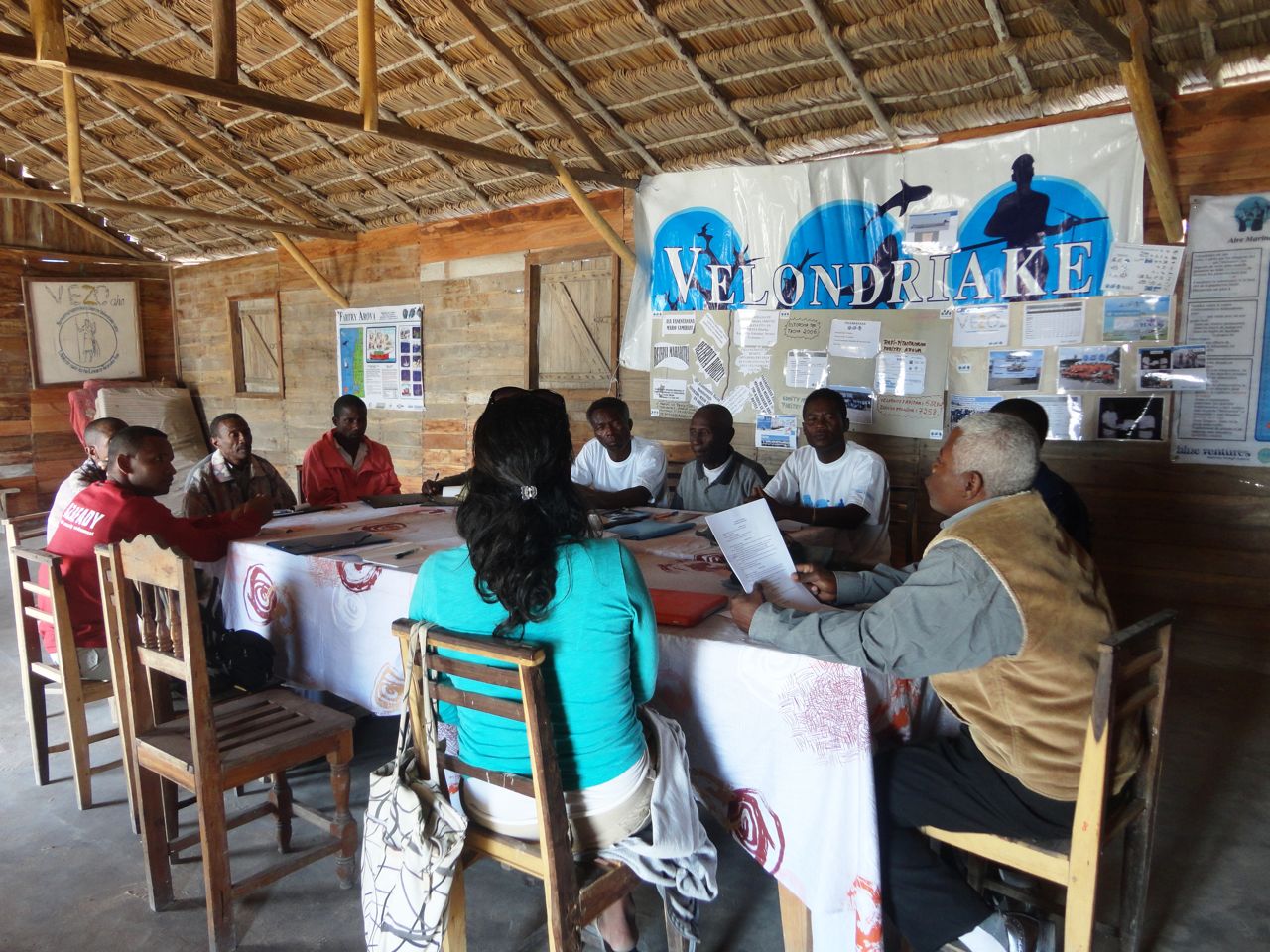
A workshop with members of the Velondriake association
One of the things that really struck the Sainte Luce fishers was the similarity between their village and the situation in Andavadoaka, particularly in terms of engaging with seafood buyers such as Copefrito and Martin Pecheur, both of whom are supportive of the temporary fishery closure model as it is seen to increase catches.
The visit encouraged the Sainte Luce fishers to reflect on their own practices, the sustainability of marine resources in general, and the urgent need for greater management in their village. They were inspired to see how the success of the temporary octopus fishery closures in Andavadoaka had catalysed broader management efforts by the community, ultimately leading to the creation of Velondriake as a locally managed marine area with permanent reserves for coral reefs, mangroves and seagrass beds. This is something that they hope to work towards in Sainte Luce, starting with the lobster no-take zone.
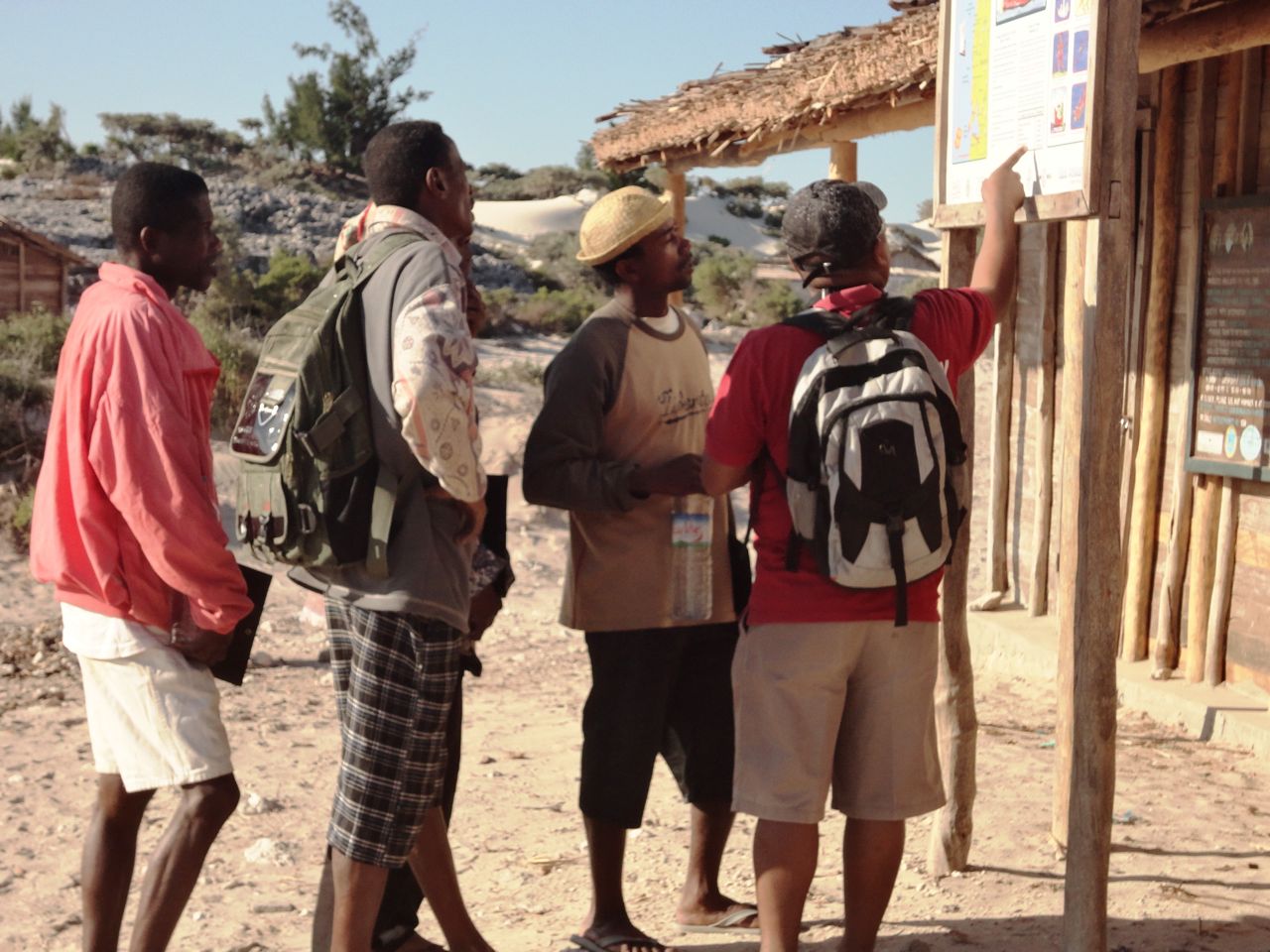
Noticeboard explaining the Dina governing the Velondriake locally managed marine area
The exchange provided lots of food for thought for Azafady, with Emahalala Ellis, Head of their Environment and Conservation Department, remarking on the high level of community engagement in Velondriake: “The visit was an important learning experience as it really helped me to reflect on how Azafady supports communities to meet their natural resource management goals, and what exactly my role should be in the context of the lobster project. It was fascinating to witness how Blue Ventures facilitates sustainable development with local communities in Velondriake, as there are evidently many parallels between this model and Azafady’s approach to capacity building.”
In addition to discussing temporary fishery closures, the delegation was also keen to understand how this management tool fits into Blue Ventures’ broader integrated approach, including the development of sea cucumber and seaweed farms as alternative coastal livelihoods. Throughout the visit there was a real sense of mutual learning between all involved, with discussions about forest management providing Velondriake Association members with an exciting opportunity to learn from Azafady’s experiences in Sainte Luce, where they have been working on terrestrial conservation initiatives for the past fifteen years.

The delegation from Sainte Luce with members of the Velondriake association
The exchange provided the lobster fishers with valuable first-hand insights into a successful marine resource management initiative, and they returned to Sainte Luce buoyed with greater confidence and knowledge; eager to share their learning from Andavadoaka, and prepared to implement the first temporary lobster fishery closure with their community.
—
Blue Ventures’ octopus initiative and Azafady’s lobster initiative are both supported by SmartFish, a regional fisheries project managed by the Indian Ocean Commission, funded by the European Union and co-implemented by the Food and Agriculture Organization of the United Nations. This exchange visit was generously funded by SmartFish.
Since the visit to Andavadoaka in late July, Azafady has supported the Sainte Luce fishers to finalise a set of Dina governing their very first lobster no-take zone, which has been approved by the Ministry of Fisheries and will come into effect at the end of September, in time for the lobster breeding season. Blue Ventures is providing Azafady with technical advice about community-based fisheries monitoring in support of this project, and we look forward to seeing the results of the temporary spiny lobster closure in Sainte Luce. It is hoped that in the future there may be an opportunity for Velondriake Association members to visit Sainte Luce and further build upon the exchanges that were initiated through this visit.

